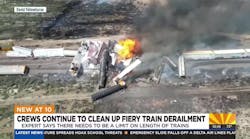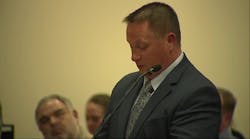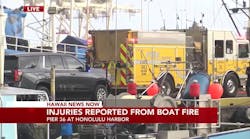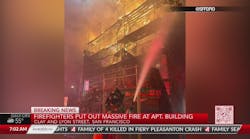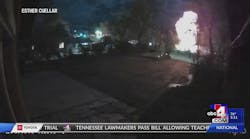The economy has led to a considerable impact on municipal budgets and, subsequently, on fire department budgets. Elected officials are feeling the strain to reduce operating expense and they are looking at all options for balancing budgets. This includes the fire department.
Public safety budgets were, at one time, considered sacred and immune from reductions. This is not the case any longer. The strain of the lost revenue has exposed every aspect of a municipal budget to scrutiny. The International City and County Managers Association (ICMA) is fueling the scrutiny of public safety budgets.
Questions for Leaders
The ICMA has developed a program it is presenting to municipal leaders entitled “Asking Your Police and Fire Chief the Right Questions To Get The Right Answers”:
1. How does the performance and cost of fire department programs objectively benchmark against other fire departments with similar call volumes and demographics. Where does the data come from to answer this question?
2. Are the fire stations in the right locations to optimize the response capabilities and resources of the fire department?
3. How many response resources is the “right” amount for fire calls? For medical calls? What determines the correct amount?
4. What is an acceptable productivity level to expect from EMS personnel?
5. What is an evidence-based and legally defensible response-time goal for the community, and how often does the fire department reach critical response levels (i.e., too few units)?
6. Many communities use a 90th-percentile response time as a standard for first arriving units. What is the fire department’s response time standard?
7. Does the fire department need to send large apparatus to all calls for service, including all medical requests from 911?
8. Do fire department units need to respond with lights and sirens to all 911 calls, despite the nature of the complaint?
9. How much down time do fire and EMS personnel have while waiting for calls? How do we evaluate the right number of personnel to have on-duty and the appropriate schedule for them to work?
10. Does the fire department treat the standards published by the National Fire Protection Association (NFPA) and the Insurance Services Office (ISO) as requirements or as guidelines?
11. If the number of fire-related responses is trending downward, when do the numbers become low enough to consider consolidating or contracting with another community for fire protection? What are the alternatives to having our own fire department?
12. Some communities are selectively closing fire stations (sometimes termed “rolling brownouts”) to reduce costs. What are the benefits and risks of this strategy?
13. In addition to providing medical first response service, should the fire department get into or out of the business of transporting patients?
14. Should the fire department consider getting into the business of non-emergency transports (inter-facility and scheduled transports)? How much extra revenue might this generate?
15. Regardless of what others are doing, is our fire department better positioned to provide EMS transportation in our community than other organizations? What factors should be considered?
16. Besides privatization, what strategies could be used to improve efficiency of our fire services?
17. Can service levels be enhanced without changing the governance structure or making significant additional investments?
18. How can we be assured that the processes, procedures, and protocols utilized in managing our fire department reflect current best practice? Where are we getting our information?
19. Fire and EMS are dangerous occupations and generate significant internal and external litigation. How should our fire and EMS system evaluate and mitigate both safety and legal risks associated with providing these services?
20. Emergency services represent a large percentage of our community’s budget. How do we show the taxpayers we are getting the best value for the dollars we spend?
Business Models
Some fire department leaders have been administrating their departments for many years using a business model that captures, evaluates and applies metrics in their budget-justification process. Those who have been progressive visionaries will find few surprises among the questions the ICMA is suggesting elected and appointed municipal leaders ask their fire chiefs. For these departments, the questions are not only easy to answer, but the principles behind the questions have been driving the department’s direction long before the economy downturned.
Some fire department managers, on the other hand, have not been as astute to the metrics used to drive decisions. Those who have been less progressive may find themselves underprepared for the tough questions they are likely to be asked. The blind-trust and open-checkbook days have come to a close, at least for now, and are likely to remain closed for the balance of most currently sitting fire chiefs’ tenure.
It is important to understand both the questions and the metrics that support quality answers. Unfortunately, the data that supports responses to some of the questions require the accumulation of longitudinal data (statistical performance data gathered over years). An astute official, rightfully so, is likely to question the characterization of short-term data (gathered over months or a few years) as not being indicative of trends.
When facing tough questions, it is always better to anticipate them to have well-prepared responses. Through their seminars, website and magazine, ICMA consultants are coaching administrators on the tough questions to ask. Consider this Firehouse® series to be your coaching on the answers to the tough questions. Whether the tough questions will be coming from town administrators, elected officials or citizens, it is important for fire department leaders to be ready for the questions with well-prepared responses. The ICMA is coaching its members on the questions to ask, speckled with some opinionated foregone conclusions on the answers.
Each segment of this series will address the questions and provide answers based on best practices. These are tough times and some fire service leaders are navigating uncharted waters. This series will provide coaching to help you survive and thrive.
